Care All the Way
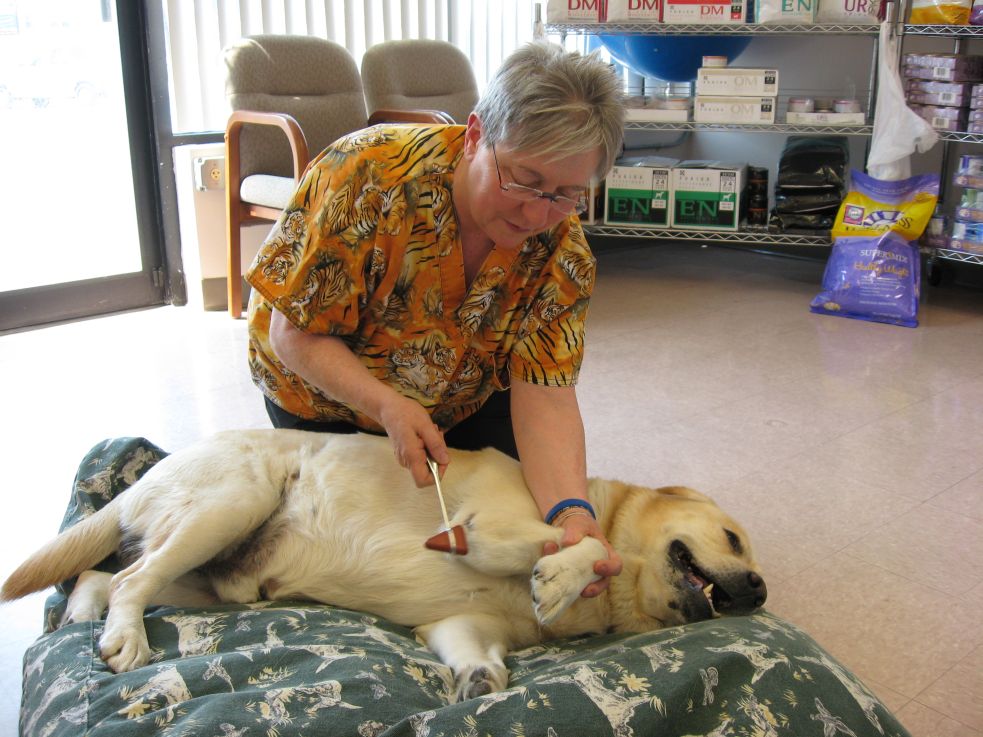
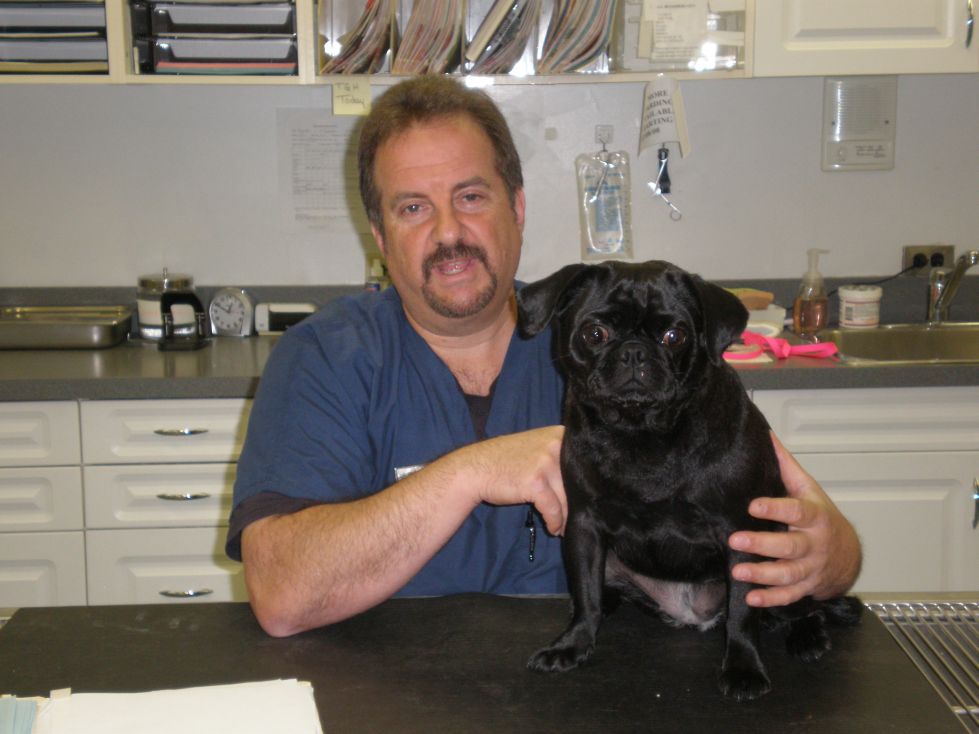
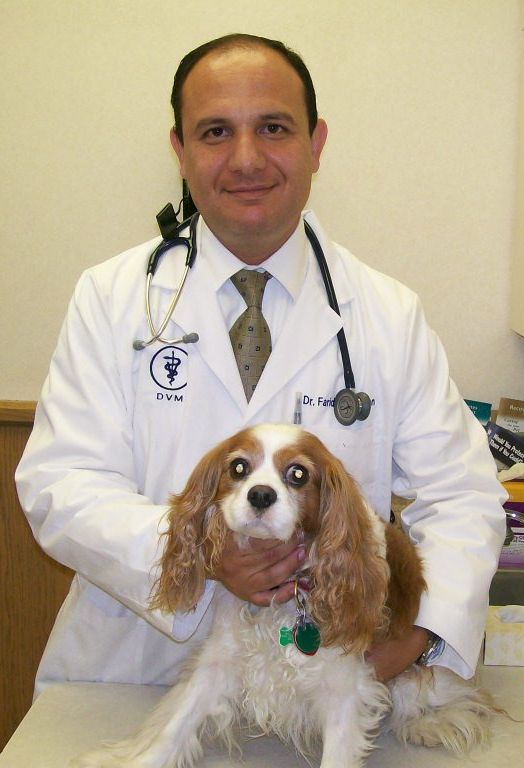
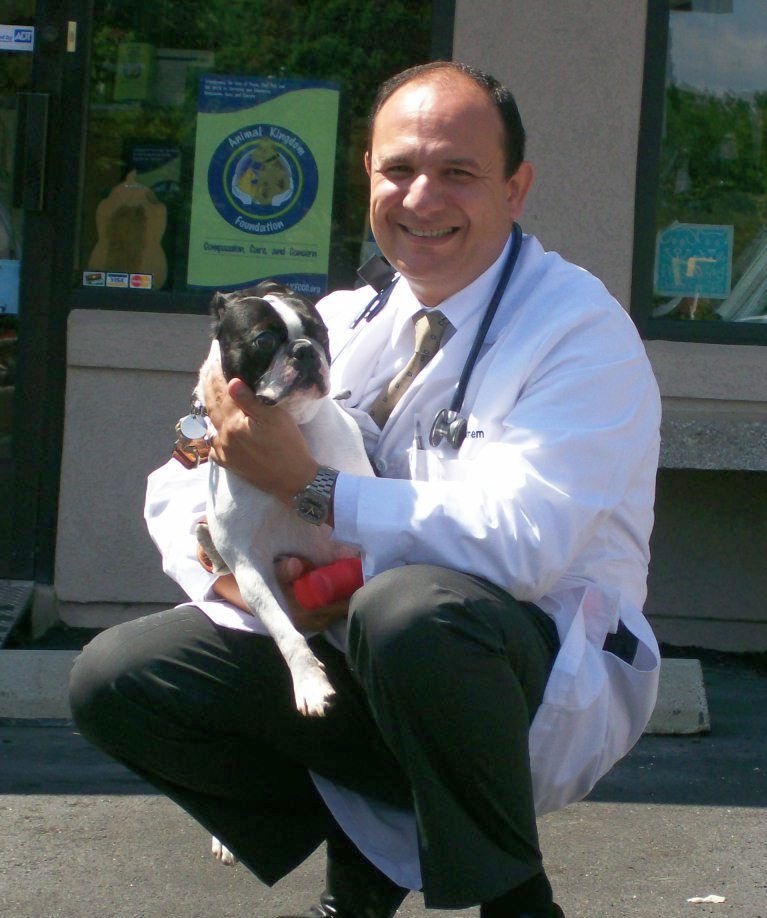
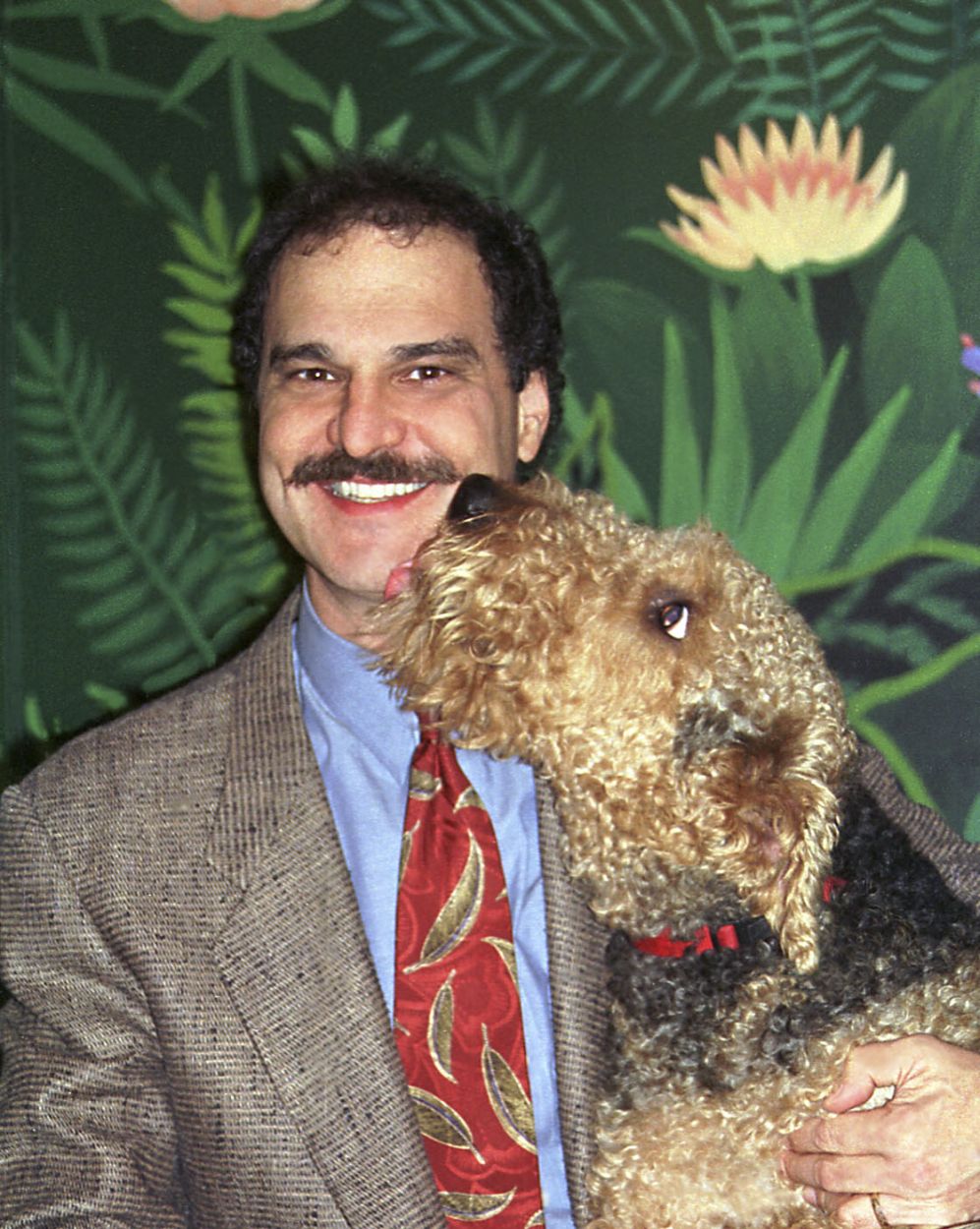
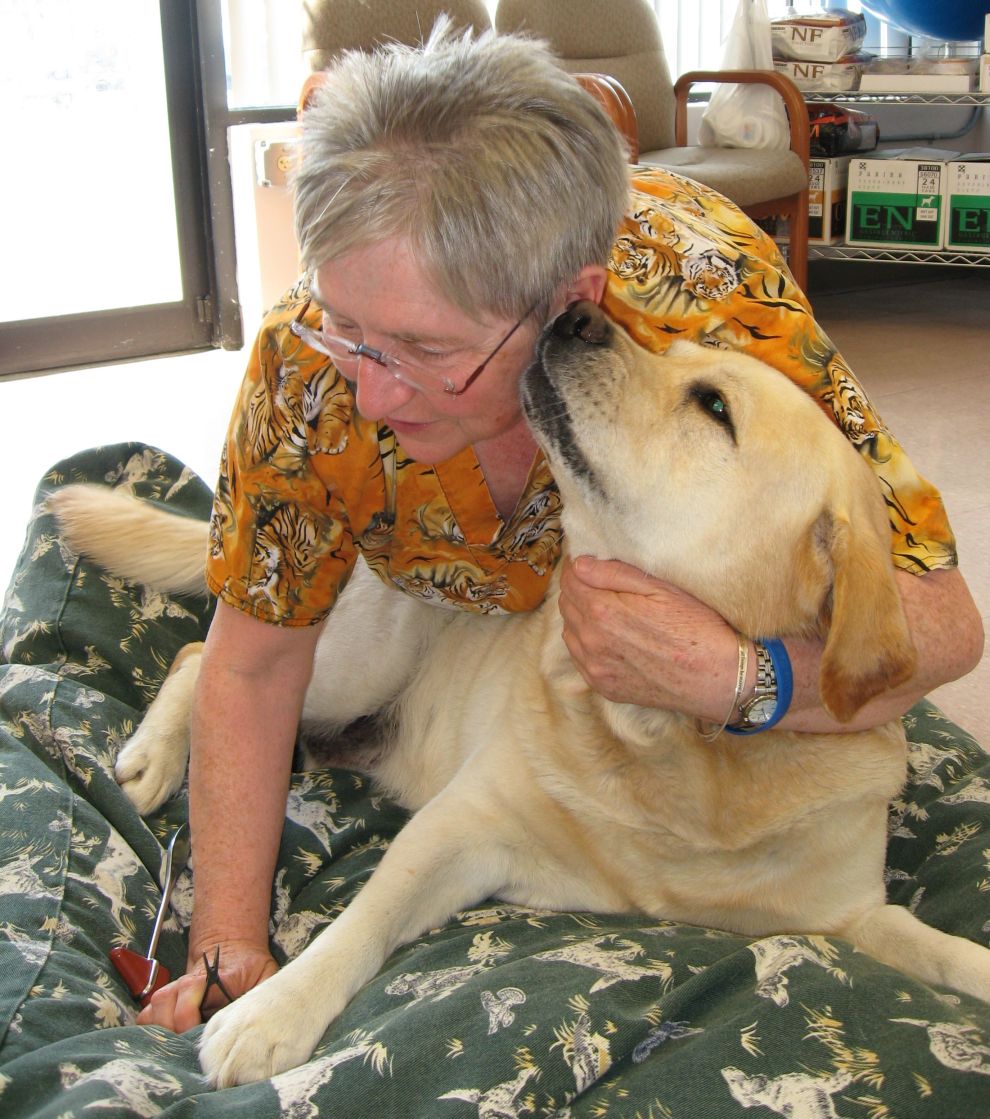
My wife and I repeated that word sadly to each other throughout the day, on our dog walk and out hiking with friends.
Good Attitude
Like many dog owners, we responded as though "geriatric" meant there was nothing left but moving helplessly to the end. In the words of Dr. Barry Rosenbluth, DVM, who is part of a diagnostic group at the Pet Medical Center of Springfield, VA, which focuses on geriatric dogs, we behaved as if Kramer had an illness. "Old age is not a disease," he emphasizes. "There are expected changes requiring attention, but older dogs don't have to be uncomfortable and suffer."
Dr. Rosenbluth's words are echoed like a mantra by veterinarians across the country who focus on geriatrics. They emphasize that geriatric years should be as exciting as other periods.
It begins with a good attitude. This may sound cliche, but it is the essential background for providing healthy geriatric years. Dr. Avra Tracht runs All Tails Wagging Veterinary Clinic in Santa Rosa, CA. She says humans, not dogs, focus on age. "We're shocked when we hear 'geriatric'," she explains. "I say, 'Don't worry, we won't tell your dog.' Remember, your dog has no idea how old he is. If he's comfortable and gets what he needs, he's happy."
We're in it Together
There are illnesses that only some dog owners will experience. But having a geriatric dog is something all of us – pet owners, breeders, researchers, veterinarians – have in common. Dr. Marge McMillan, who runs the Windhover Veterinary Center, in Walpole, MA, says "I learned everything I know about geriatrics from my Yellow Lab, Sterling, who lived to 17."
Veterinarians play an interesting role in our lives. We see them as scientific authorities, and we expect emotional support from them, especially when we have geriatric dogs. "Half of our work is medicine," Dr. McMillan says, "half is psychology, understanding that people want the bond to last as long as possible."
People humanize their dogs, making geriatric years more personal. Dr. Farid Boughanem, DVM, owns the Cherrydale Veterinary Clinic in Arlington, VA, where he emphasizes non-surgical care for older dogs. "People see themselves in the dogs. There's an elderly client with arthritis. When her dog became arthritic, she begged me to assure he doesn't suffer from it."
To ease the shock, and find the right mindset, a simple word change helps. Dr. Rosenbluth says, "I use 'senior' instead of 'geriatric.' That's nicer, associated with 'senior discounts' and things like that." Caring for his Yellow Labrador Retriever, who is almost 13 years old, Dr. Rosenbluth understands this subtle adjustment.
Dr. Tracht's dog, Maddie, an Australian Shepherd mix, is the greeter at her clinic, and she is eight years old. "Entering her geriatric years," Dr. Tracht says calmly. After dispensing advice to her patients for years, she now must follow it herself. "Don't mourn your elder dog. That separates you, when your dog just wants to be happy and continue living as a family member."
Dr. Wayne Hunthausen, DVM, owns Westwood Animal Hospital in Westwood, KS, where he advises owners of geriatric dogs. Thinking of his own dog, an 11-year-old Standard Poodle named Bob, Dr. Hunthausen says senior years can be great. "You have to remember what your dog has enjoyed. Older people often re-discover something they loved when they were younger. Do the same thing with your dog."
The Daily Walk
Walking our dogs is a timeless ritual. Often, people cut back in the senior years, but this is when your dog can get the most out of regular exercise. "My strong recommendation is keep up those walks," Dr. Hunthausen says. "It's good for general health, and also maintains social contacts."
Dr. McMillan tells her clients to do regular walks, with consideration for age. "Keep your dog moving! Don't let him lie around. To be easier on joints, do multiple, shorter walks, rather than one long walk."
Cognitive Health
Like people, dogs get mental cobwebs. Reading and writing build mental capacity at all ages. For dogs, walks serve the same purpose. Dogs are all about nose. Taking the same walk every day, dogs start predicting the smells and their brains kind of turn off. Mix things up a bit. "Surprise them by going in different directions, or different places," Dr. McMillan advises, a simple way to transform a daily routine into cognitive exercise. "Make them engage their minds."
"Maybe there's a neighborhood with interesting architecture, or you want to check out new landscapes?" Dr. Hunthausen suggests. "Take your dog there, introduce him to new smells. This is great for their brains."
At home, that basket of toys that has been tucked in a corner for ages is a grab-bag of mental stimulation. "For puppies, toys keep them out of trouble," Dr. Hunthausen says. "For seniors, it stimulates their minds. Find toys your dog has to manipulate and roll to get food out."
"Changing toys is great," Dr. Tracht suggests. "And don't bring all the toys out at once. Only put out some, and rotate them."
Obedience training is an excellent way to get mental gears moving. Teach your dog old tricks she used to know, but forgot somewhere along the line. "Get some treats," Dr. Hunthausen jokes. "Being realistic, it might take more motivation to get her going!"
A Cure for Old Age?
What research is being done to improve old age in dogs? This is a common question dog owners have. When asked for answers, veterinarians say the question reveals that tendency to think of old age as an illness.
As Dr. Rosenbluth points out, "There's no single thing promising dramatic changes for older dogs. We have new technologies, better foods, better medications – a lot of little things we can do." Combined, these things make a big difference.
Dr. Rosenbluth cautions that the desire for a "cure" can let our emotions override healthy skepticism. He describes an ad for a supplement that seems to erase old age. "You spray it into the water. In one scene, this decrepit old dog takes a sip. Suddenly, he's hopping through a field like a puppy." Dr. Rosenbluth sees a lesson. "We're all vulnerable to this kind of promise. But if something is too good to be true, inquire about its scientific basis."
Physical Therapy
At age 15, Sterling developed a degenerative condition that led to the inability to use his hind legs. For two years, Dr. McMillan carried him everywhere, until he suffered a stroke and was euthanized. Sterling's life changed Dr. McMillan's entire thinking. "I knew there had to be a better way to live for senior dogs. After 30 years as a veterinarian, I went to the University of Tennessee for training in animal rehabilitation therapy, a form of physical therapy for dogs."
Dr. McMillan overhauled her veterinary practice to focus on this new technique, which assists dogs of all ages. It is especially helpful for seniors with arthritis, muscle degeneration, or neurological issues.
"When older dogs develop arthritis, or what we call 'senile muscle atrophy,'" Dr. McMillan says, "they avoid flexing their joints, which reduces range of motion." Left alone, the cycle causes increased tightening over time. In 12 intense visits, using underwater treadmills, massage therapy, and stretching exercises, Dr. McMillan helps dogs recover muscle mass and flexibility.
Animal rehabilitation therapy, now offered at several clinics, can lead to remarkable improvements. "Dogs are able to do things they haven't done for years," Dr. McMillan explains. "They jump on and off the couch, go up and down stairs better. They go for longer walks. They are just more comfortable." To achieve these goals, clients must follow up with regular at-home exercises.
One of the greatest benefits of animal rehabilitation therapy is the option to reduce pain medications. "Often, we get drugs down a couple of times a week," Dr. McMillan says. "Sometimes, we eliminate drugs altogether."
Be Aware
To care better for elder dogs, it is good for owners to be attuned to slight changes in habit, attitude, energy, or anything else unusual. "People assume an odd behavior is because the dog is old," says Dr. Tracht. "But if suddenly his appetite changes or he's slower, it could be an underlying disease process."
These changes can be subtle, which is why geriatric veterinary appointments are longer than previous ones. "It's important for us to have time to speak with owners about anything they notice at home," Dr. Tracht explains.
Even with more obvious changes, owners may make the wrong assumption. "If your dog snaps at someone, and he's never done that before," Dr. Hunthausen advises, "don't say, 'he's just getting old and irritable.' It might indicate a serious medical problem."
Even if it is not a serious problem, snapping can indicate discomfort. "Your dog might be in pain," Dr. Tracht says. "There are so many things we can do now to control that pain."
Other signs to watch for include excessive drinking and urination, which could suggest kidney problems. "Moist coughs or restlessness, especially at night," Dr. Hunthausen says, "can mean heart trouble. Persistent vomiting or loose stool may be signs of gastrointestinal or liver problems." Call your veterinarian if you see any of these. With early intervention, a lot can be done to help.
More Veterinary Appointments
Evolution has programmed dogs to hide pain. No matter how attuned you are, certain signs may be too subtle to see. "Dogs are pack animals," Dr. Rosenbluth explains. "To survive, they cannot be a weak link. They don't visibly reveal pain, so we need diagnostic tests."
Veterinarians with a geriatric focus double appointment frequency, from once to twice a year. "If you see the vet every year, that's like seeing your doctor every seven years," Dr. Boughanem explains. "A lot can develop in a year. Twice a year allows us to be preventive. Something may not be lethal, but it can become serious if it develops before we see it."
More frequent visits allow your veterinarian to make better comparisons from one period to the next. "All the numbers – blood work, MRIs, X-rays – are meaningless without good histories," Dr. Boughanem emphasizes. Together with owner observations, more frequent diagnostic information allows you and your veterinarian to follow an effective preventive program.
Speaking from years of experience, Dr. Rosenbluth says, "Many times, I've seen something come up, like a kidney disease. Just changing the diet can have a dramatic effect. But if we had waited six months, that dog would have been in serious trouble."
Dental Care
Numerous studies show a connection between dental health and general physical wellbeing – for dogs and people. More than almost anything else you can do, brushing your dog's teeth for three minutes, three times weekly, has far-reaching benefits.
"People don't realize, all the junk in the mouth affects many other organs," Dr. Hunthausen explains. "The heart, liver, kidneys, are all harmed by bad teeth and gums. Brushing also avoids putting the dog under anesthesia to fix loose teeth."
Dental care frightens dog owners. How to get the dog sitting still and accepting the brush? How long will it take? Is it stressful for the dog? Veterinarians promise that the more you brush your dog's teeth, the more accepting she will be.
Try different brushes. Electric, standard soft-bristled, or rubber ones that fit over your fingertip, are all effective. While brushing, remember dogs are tuned in to our attitude. Stay calm. Offer regular praise as you go along.
It only adds up to 10 minutes a week – one of the best health investments you can make for your dog.
Nutrition
With full-time scientists on their staffs researching and testing ingredients, many pet-food companies have come a long way in creating excellent diets for dogs of all ages. Veterinarians name their favorite brands, but emphasize that most major companies have done a good job.
Dr. Boughanem says confidently, "Pet food companies deserve credit for dogs' expanded lifespans. They have combined vitamins, proteins, and amino acids for brain, eyes, and joints."
Every day in their clinics, veterinarians see visible evidence supporting corporate claims about beneficial ingredients for the whole body and mind. What should you look for? Dr. McMillan and Dr. Tracht emphasize fatty acids, alpha-lipoic acids, and vitamin B. Dr. Hunthausen cites antioxidants, flavonoids, and caretinoids.
One caution: do not add these elements yourself. Although supplements are available, it is better to purchase scientifically developed foods with the right proportions.
Thought and Action
All of us will eventually hear the word "geriatric." How we respond makes the difference. As Dr. Tracht explains, from personal and professional perspectives, "Our dogs give us so much. My attitude is, we don't want to just have them live longer. We want them to live better. Today, if we pay attention, there's a lot we can do to provide happier and longer lives."
